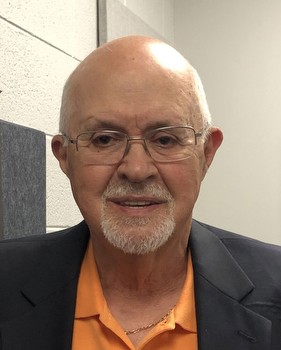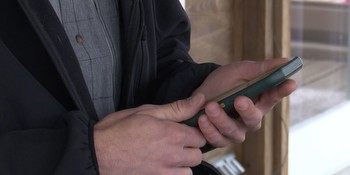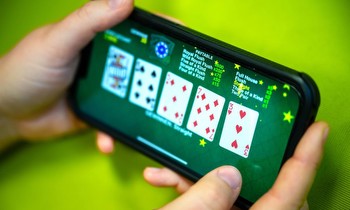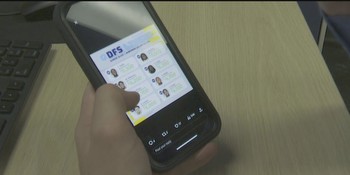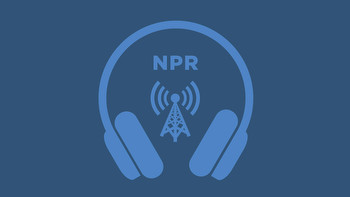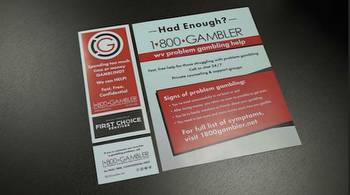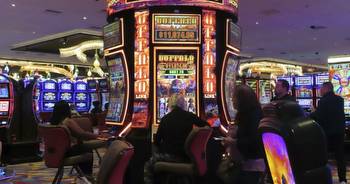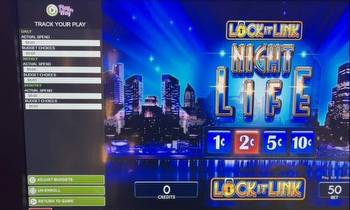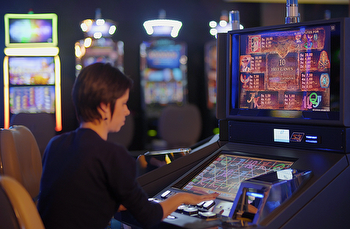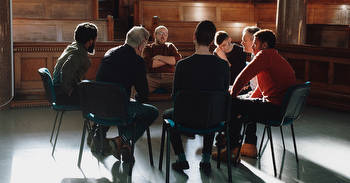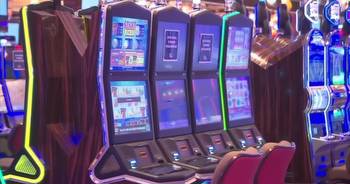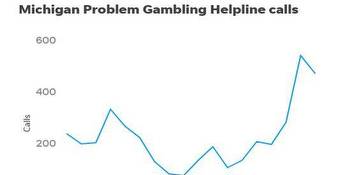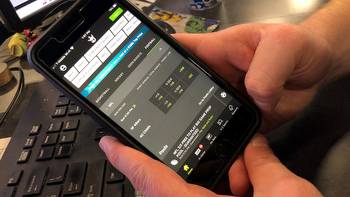Michigan tackles dramatic rise in problem gambling

This article is part of State of Health, a series about how Michigan communities are rising to address health challenges. It is made possible with funding from theMichigan Health Endowment Fund.
Shelby Township resident Nicholas Tabarias’ initiation into problem gambling began in 2014, when he moved in with an aunt who made frequent trips to the casino.
"She loved playing slot machines and frequented the casino almost every day," he says. "During the beginning stages, I would accompany her to the casino and watch her play, but eventually the sights, sounds, and the idea of the big win … turned into problem gambling."
Tabarias began going to the casino every day to play blackjack, Texas hold ‘em, and tournament poker. He also began showing up late for work or missing work entirely. He started gambling away his paychecks, turned to payday loans, and ended up pawning his beloved musical instruments.
"I would lose all my money, rack up debt, and chase my losses by taking more loans out," he says. "It was a vicious cycle that was progressively destroying my life."
When he was not at the casino, he spent his time researching strategies, like counting cards, to improve his chances of winning.
"I thought a big win would solve all my problems, that I would be able to take care of myself and my family and life would be great," Tabarias says. "Unfortunately, this wasn't the case. I was definitely digging a very deep hole. I had to hit rock bottom and realize that I was powerless over gambling, that my life had become unmanageable, and seek out help."
Tabarias first step on the road to recovery was calling theMichigan Problem Gambling Hotline. Help from Mike Moody, a licensed clinical psychologist who works with the Helpline, and a referral to Gamblers Anonymous (GA) meetings were exactly what Tabarias needed to overcome his addiction.
"I love the recovery meetings. You're welcome with open arms. You’re in a judgment-free zone and you are with others who have very similar stories," Tabarias says. "It’s like a family unit. You're able to talk about what you're struggling with. For me, that really made a difference."
Problem Gambling Hotline a safe bet
Tabarias is far from alone in his experience with problem gambling. His call to the Problem Gambling Hotline was one of 4,400 made in 2021 — the first full year that online gambling was legal in Michigan. This number triples the calls received in 2020. While online gambling brought the state $20.5 million in tax revenue and other payments in January 2022 alone, referrals to gambling treatment increased by 42% from 2020 to 2021. The ongoing COVID-19 pandemic and resulting social isolation has left many Michiganders with idle time, stress, and anxiety, all of which increase a problem gambler’s urge to gamble.
"Online gambling led to increased gambling activity for those that were already engaged and going to the casinos and whatever their gambling activity of choice may have been," says Alia Lucas, Michigan Gambling Disorder Treatment and Prevention program manager. "Also, it introduced gambling as an individual game. If you add the increased accessibility with online gambling and sports betting, now you make it even more available. It’s at your fingertips on your phone or computer. You don't have to leave your home. That has definitely exacerbated gambling activity."
Gambling disorder is categorized as an addiction-related disorder in the Diagnostic and Statistical Manual of Mental Disorders, Fifth Edition. Gambling addiction has thehighest intentional suicide rate of any addictive disorder. Problem gamblers are 15 times more likely to commit suicide than the general public.
Signs of problem gambling include being preoccupied with how to get more gambling money; gambling with increasing amounts of money; trying to cut back or stop gambling without success; feeling restless or irritable when trying to cut down; using gambling to escape problems or relieve feelings of helplessness, guilt, anxiety, or depression; trying to get back lost money by gambling more; lying about gambling; jeopardizing relationships, school, or work opportunities; and stealing or borrowing to replace money that's been gambled away.
"Gambling is a hidden addiction. There are really no physical indications that you're going to be able to assess to determine if somebody is in over their head," Lucas says. "It takes such a grasp and puts such a hole in your life. Oftentimes problem gamblers don't see any other way out."
Hope for the big win clouds gamblers’ judgment even more. Lucas notes that people who win big during their first gambling experience have a 30% higher risk of problem gambling.
"One thing that makes it difficult with this particular addiction is that the world recognizes gambling as a recreational pastime," Lucas says. "For a lot of people, it's normalized in the household. I grew up with family members that played the lottery and I don't think anything about it. Some family members may have gambling parties, or you may play bingo at church. We often dismiss problem gambling as a lack of self-control without actually looking at it as something beyond recreational playing."
State symposium extended hotline’s work
To address the increase in problem gambling, the Michigan Department of Health and Human Services held a virtual Gambling Disorder Symposium on March 3 and 4, 2022. The event brought hope to individuals struggling with problem gambling, those who have loved ones who are problem gamblers, and practitioners who help others with problem gambling. Gambling addiction experts spoke along with people who have experienced problem gambling. The symposium also addressed the increase in young people struggling with problem gambling due to online gaming.
Brianne Doura-Schawohl.
"The game has changed and so, too, have the problems," says Brianne Doura-Schawohl, symposium keynote speaker and CEO of Doura-Schawohl Consulting, a government relations and gaming consultancy. "We are finding, through the proliferation of sports and online gaming, that helplines across the US are experiencing an increase in calls for help, many of whom are young men struggling with sports wagering now that it's become much easier to gamble from your phone and in the comfort of your home."
Doura-Schawohl notes that online access has evolved gambling from being an outing or event to an ever-present temptation. What once was a single opportunity for one wager on a sporting event has become a series of real-time wagers throughout the span of a game.
"If someone struggles with a gambling disorder, it will negatively impact eight to 10 other people around them. This really is a significant emotional and mental addiction," Doura-Schawohl says. "The shame and stigma associated with gambling addiction is the worst of all the addictions. Many folks who are struggling do so in silence."
To exacerbate problem gambling even more, gamblers can make bets with credit cards and e-wallets funded by credit cards. Other countries, like the UK, Spain, Australia, Germany, and France, are banning credit cards and e-wallets and restricting gambling advertisements.
"With legalization, the aggressive marketing, promos, and bonus deals that are often dangled in front of people are incentivizing them to engage in play more. People are probably gambling when they never would have, and it’s instantaneous," Doura-Schawohl says. "We are bringing in a whole new base of customers with this wave and people are engaging in gambling for the first time ever. Many of them are young and don't know the risks that come with gambling."
While the new crop of problem gamblers tends to be young, white, well-educated, and male, problem gambling does not discriminate. It is no longer relegated to certain populations. And its reach extends beyond financial ruin.
"Gambling comes with risk, just like that sip of alcohol," Doura-Schawohl says. "Gambling disorder ruins lives. But there's no reason that anyone should have to struggle in silence. There is help. There is hope. And there are people out there who want to help."
Tabarias has found his way through to the hope on the other side of problem gambling. He hasn't gambled for a year, and he finds being of service to newcomers at his GA group helps him abstain from gambling.
"They also remind me of what I went through. The program has been helping me change my way of thinking and living," Tabarias says. "I've been able to pay off my debts. I’m showing up to work and showing up on time."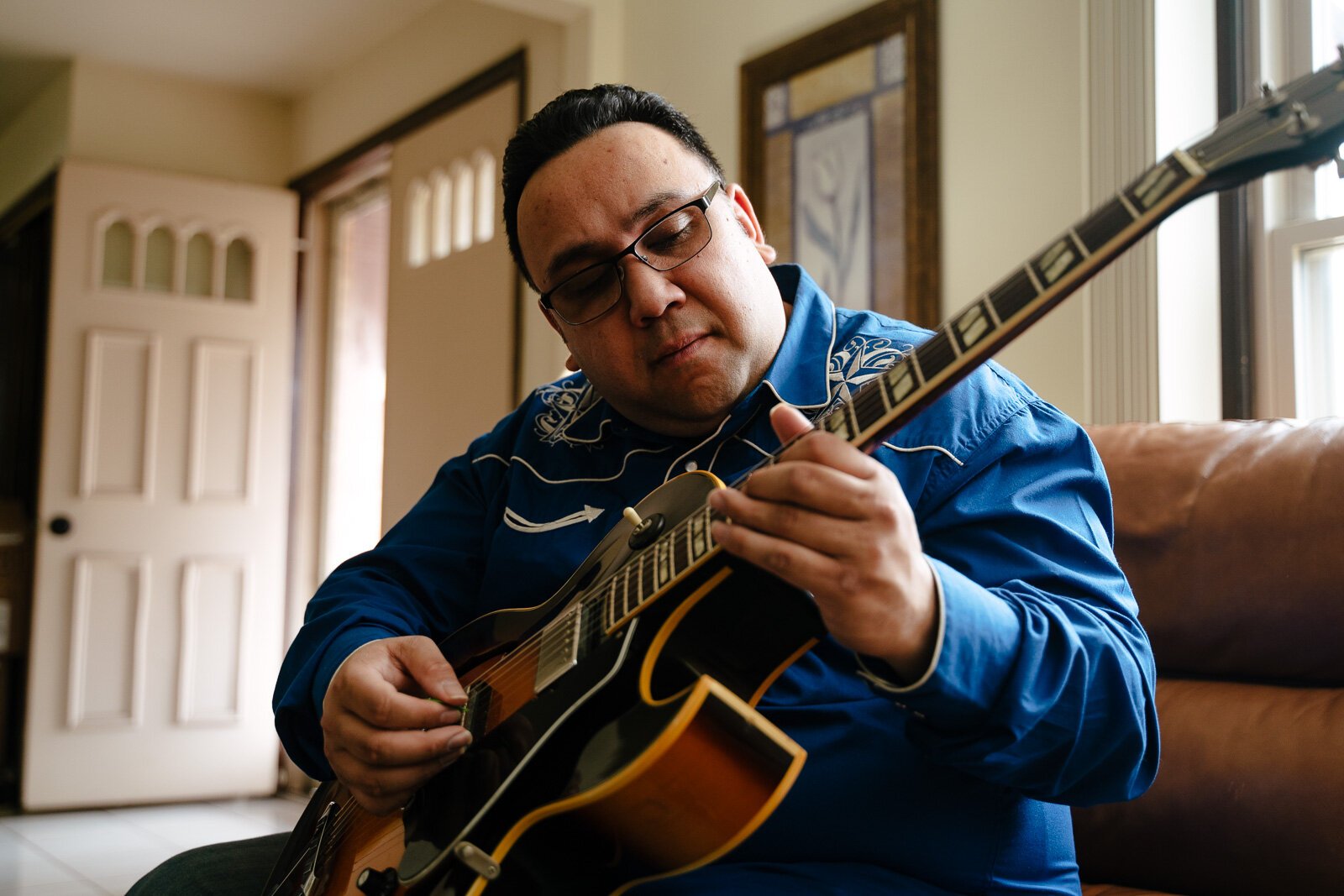 Nicholas Tabarias.
Nicholas Tabarias.
He's also rediscovered his love of music, having released an album and played shows with his dad.
"It's such a contrast," Tabarias says.
To reach the Michigan Problem Gambling Hotline, call (800) 270-7117.
A freelance writer and editor, Estelle Slootmaker is happiest writing about social justice, wellness, and the arts. She is development news editor for Rapid Growth Media and chairs The Tree Amigos, City of Wyoming Tree Commission. Her finest accomplishment is her five amazing adult children. You can contact Estelle at Estelle.Slootmaker@gmail.com or www.constellations.biz.
Nicholas Tabarias photos by Nick Hagen.








